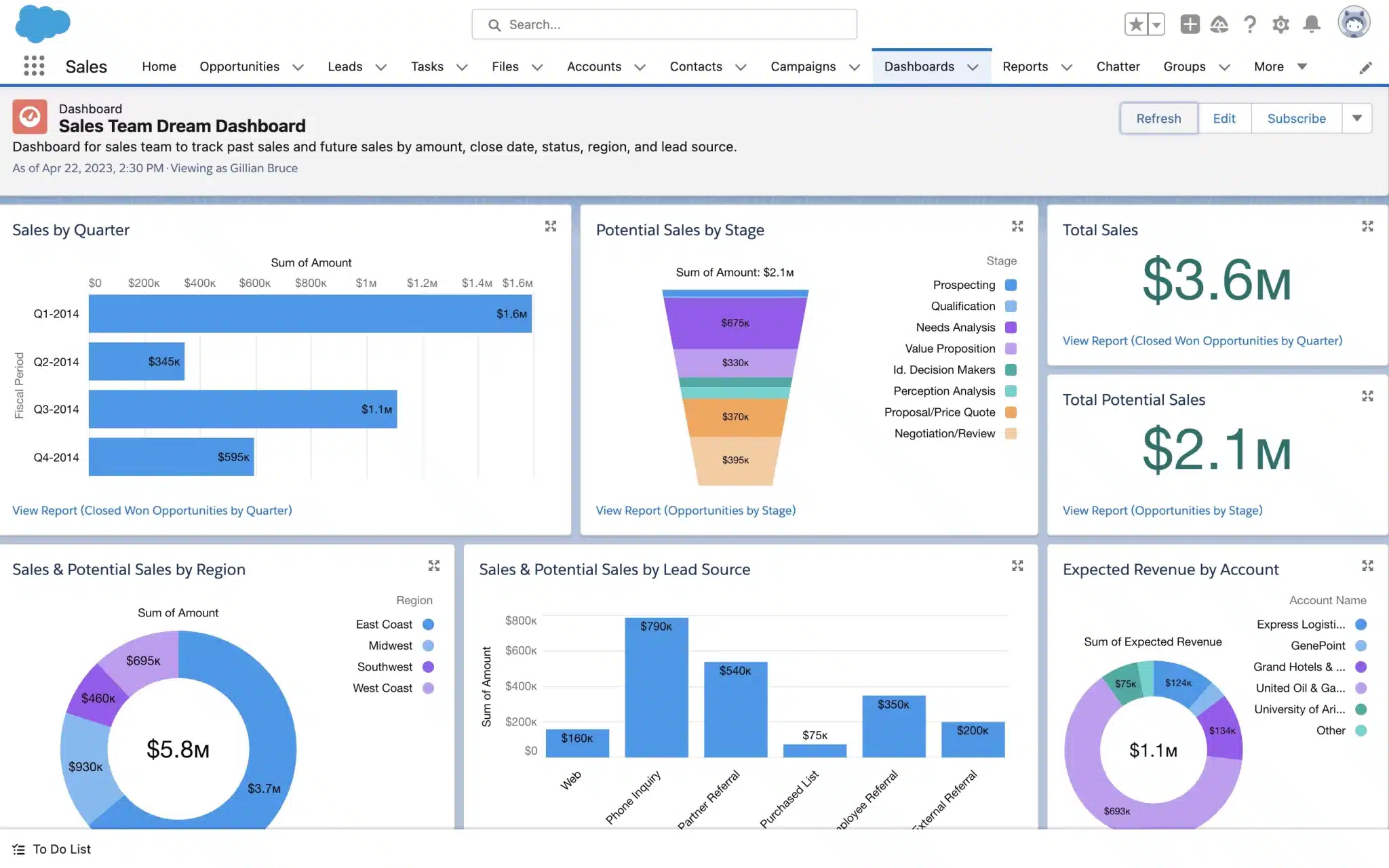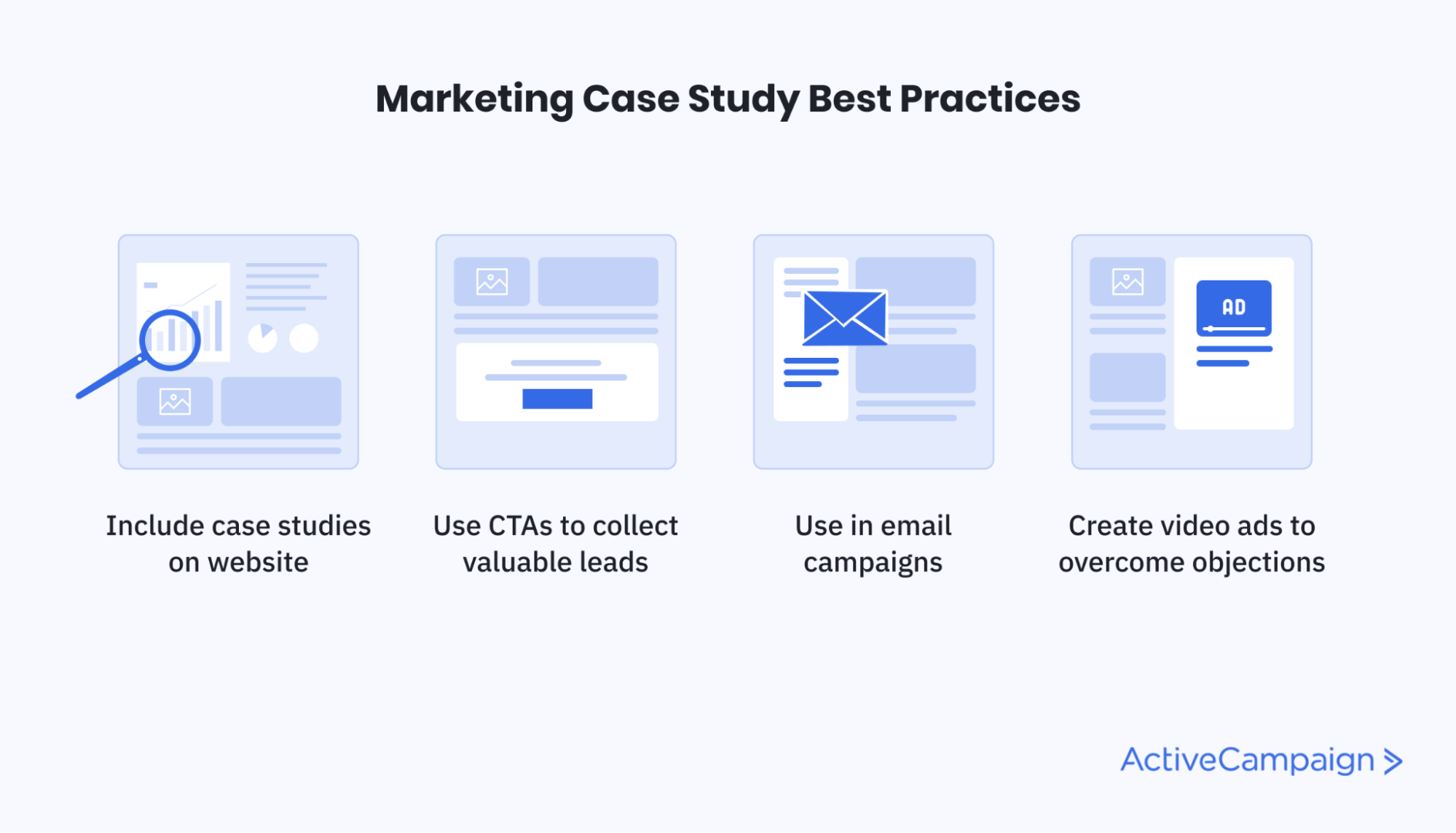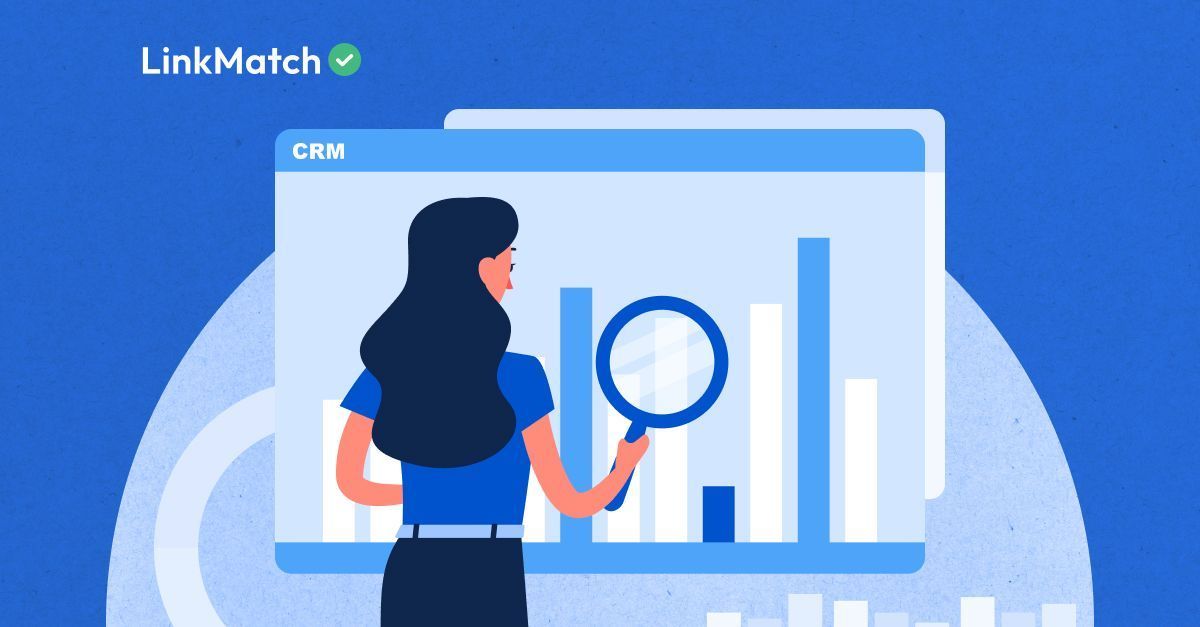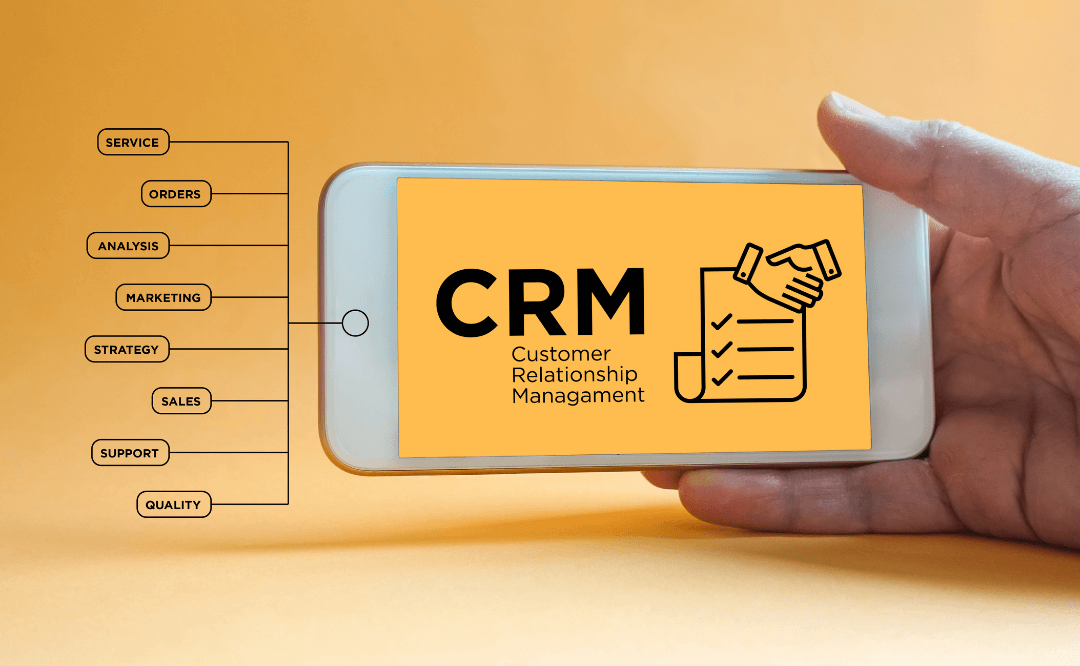Supercharge Your Small Business: CRM Enhancements to Watch for in 2025
Supercharge Your Small Business: CRM Enhancements to Watch for in 2025
Running a small business is a whirlwind of activity. You’re juggling everything from customer service and marketing to sales and operations. In the midst of this, keeping track of your customer relationships can feel like herding cats. That’s where a Customer Relationship Management (CRM) system comes in, acting as your central hub for all things customer-related. But the CRM landscape is constantly evolving. To stay ahead of the curve, you need to know what’s coming. This article delves into the exciting CRM enhancements predicted for 2025, specifically tailored for small businesses, so you can prepare and thrive.
Why CRM is Crucial for Small Businesses
Before we dive into the future, let’s quickly recap why a CRM is so important for small businesses. Think of it as your business’s memory and communication center. It helps you:
- Organize Customer Data: Store all your customer information in one place, making it easy to access and manage.
- Improve Customer Service: Provide personalized and efficient support, leading to happier customers.
- Boost Sales: Identify and nurture leads, track sales opportunities, and close more deals.
- Streamline Marketing: Segment your audience, run targeted campaigns, and measure your results.
- Increase Efficiency: Automate repetitive tasks, freeing up your time for more strategic activities.
Without a CRM, you risk losing track of valuable leads, missing out on sales opportunities, and providing inconsistent customer service. Essentially, you’re leaving money on the table.
Key CRM Enhancement Trends for 2025
The CRM world is undergoing a significant transformation, driven by advancements in technology and a growing focus on customer experience. Here are some key trends expected to shape the CRM landscape in 2025:
1. Enhanced Artificial Intelligence (AI) and Machine Learning (ML)
AI and ML are already playing a significant role in CRM, and their impact will only grow stronger. In 2025, expect to see:
- Predictive Analytics: CRM systems will become even better at predicting customer behavior, such as which leads are most likely to convert, which customers are at risk of churning, and which products they might be interested in next. This will allow businesses to proactively engage with customers and personalize their interactions.
- Automated Task Management: AI will further automate repetitive tasks like data entry, email responses, and scheduling appointments, freeing up sales and marketing teams to focus on more strategic activities.
- Personalized Recommendations: AI will power more sophisticated product recommendations, content suggestions, and personalized offers, leading to increased engagement and sales.
- Improved Chatbots: AI-powered chatbots will become more intelligent and capable of handling complex customer inquiries, providing instant support and freeing up human agents for more challenging issues.
For small businesses, this means more efficient operations, better customer service, and the ability to make data-driven decisions with greater accuracy.
2. Hyper-Personalization and Customer Experience (CX) Focus
Customers today expect personalized experiences. They want to feel understood and valued. In 2025, CRM systems will be designed to deliver hyper-personalization at scale:
- 360-Degree Customer Views: CRM systems will integrate data from all touchpoints (website, social media, email, phone calls, etc.) to provide a comprehensive view of each customer, enabling businesses to tailor their interactions accordingly.
- Contextual Engagement: CRM systems will use real-time data to understand customer context (location, browsing history, purchase history, etc.) and deliver relevant messages and offers at the right time.
- Proactive Customer Service: CRM systems will anticipate customer needs and proactively offer solutions, such as providing helpful articles or suggesting relevant products.
- Personalized Content Delivery: CRM will enable the delivery of highly personalized content, such as website experiences, email campaigns, and product recommendations, based on individual customer preferences and behavior.
This shift towards hyper-personalization will help small businesses build stronger customer relationships, increase customer loyalty, and drive revenue growth.
3. Enhanced Integration and Interoperability
Small businesses often use a variety of software tools to manage their operations. In 2025, expect CRM systems to become even more integrated with other applications:
- Seamless Integrations: CRM systems will seamlessly integrate with popular tools like marketing automation platforms, e-commerce platforms, accounting software, and social media channels.
- Open APIs: CRM vendors will offer open APIs, allowing businesses to customize and extend their CRM systems to meet their specific needs.
- Data Synchronization: Real-time data synchronization between different systems will become more common, ensuring that all teams have access to the most up-to-date information.
- Unified Data Platforms: CRM systems will increasingly serve as the central hub for all customer data, providing a single source of truth for all customer-related information.
This enhanced integration will eliminate data silos, improve collaboration between teams, and streamline workflows, ultimately leading to increased efficiency and productivity.
4. Mobile-First and Remote Accessibility
With the rise of remote work and the increasing use of mobile devices, CRM systems must be accessible and functional on any device, anywhere. In 2025, expect:
- Mobile-Optimized Interfaces: CRM systems will offer fully optimized mobile interfaces, allowing users to access all features and data on their smartphones and tablets.
- Offline Access: Users will be able to access and update CRM data even when they are offline, ensuring that they can stay productive on the go.
- Voice-Activated CRM: Voice assistants will be integrated into CRM systems, allowing users to perform tasks like updating customer records, scheduling appointments, and generating reports using voice commands.
- Enhanced Security: CRM systems will incorporate advanced security features to protect sensitive customer data, especially on mobile devices.
This mobile-first approach will empower small businesses to stay connected with their customers and manage their business from anywhere, at any time.
5. Focus on Data Privacy and Compliance
Data privacy regulations are becoming stricter, and customers are more concerned about how their data is being used. In 2025, expect CRM systems to prioritize data privacy and compliance:
- GDPR and CCPA Compliance: CRM systems will be fully compliant with data privacy regulations like GDPR and CCPA, ensuring that businesses can collect, store, and use customer data legally and ethically.
- Data Encryption and Security: CRM systems will employ robust data encryption and security measures to protect customer data from unauthorized access.
- Transparent Data Practices: CRM vendors will be transparent about their data practices, allowing businesses to understand how their customer data is being used.
- Consent Management: CRM systems will provide tools for managing customer consent, ensuring that businesses only collect and use data with customer permission.
This focus on data privacy and compliance will build trust with customers and help small businesses avoid costly legal issues.
How to Prepare Your Small Business for CRM Enhancements in 2025
Now that you know what’s coming, how do you prepare your small business to take advantage of these CRM enhancements?
1. Assess Your Current CRM Needs
Before you invest in a new CRM or upgrade your existing one, take the time to assess your current needs. Ask yourself:
- What are your biggest pain points with your current CRM system?
- What features are you missing that would help you improve your customer relationships?
- What are your goals for your CRM system? (e.g., increase sales, improve customer service, streamline marketing)
- What integrations do you need with other software tools?
This assessment will help you identify the features and capabilities that are most important to your business and guide your decision-making process.
2. Research and Evaluate CRM Solutions
Once you know your needs, research and evaluate different CRM solutions. Consider the following factors:
- Features: Does the CRM system offer the features you need, such as sales automation, marketing automation, customer service tools, and reporting capabilities?
- Ease of Use: Is the CRM system easy to use and navigate? Is it intuitive for your team?
- Integration: Does the CRM system integrate with the other software tools you use?
- Pricing: Does the CRM system fit your budget?
- Scalability: Can the CRM system scale to meet your future needs as your business grows?
- Vendor Reputation: Does the CRM vendor have a good reputation for customer support and service?
Take advantage of free trials and demos to test out different CRM systems before making a decision.
3. Prioritize AI and Automation
As AI and automation become more prevalent, prioritize CRM solutions that offer these capabilities. Look for features like predictive analytics, automated task management, and personalized recommendations. These features can significantly improve your efficiency and customer engagement.
4. Focus on Data Integration and Accessibility
Ensure that your CRM system integrates seamlessly with your other software tools and that your data is accessible from anywhere. This will streamline your workflows and enable your team to work more efficiently.
5. Implement a Robust Data Privacy Strategy
Prioritize data privacy and compliance. Choose a CRM system that is compliant with relevant data privacy regulations and implement a data privacy strategy that protects your customers’ data. This includes obtaining consent for data collection, encrypting sensitive data, and providing customers with control over their data.
6. Train Your Team
Once you’ve selected a CRM system, train your team on how to use it effectively. Provide them with the necessary training and support to ensure that they can take full advantage of the system’s features and capabilities. Ongoing training and updates are also essential to keep your team up-to-date on new features and best practices.
7. Continuously Evaluate and Optimize
CRM is not a set-it-and-forget-it solution. Continuously evaluate your CRM system and make adjustments as needed. Track key metrics, such as sales conversions, customer satisfaction, and marketing campaign performance, to identify areas for improvement. Regularly review your CRM processes and make changes to optimize your performance.
Benefits of Embracing CRM Enhancements in 2025
By embracing the CRM enhancements predicted for 2025, small businesses can reap a multitude of benefits, including:
- Increased Sales and Revenue: By identifying and nurturing leads more effectively, personalizing customer interactions, and streamlining the sales process, you can close more deals and increase your revenue.
- Improved Customer Satisfaction and Loyalty: By providing personalized experiences, proactive customer service, and efficient support, you can build stronger customer relationships and increase customer loyalty.
- Enhanced Efficiency and Productivity: By automating repetitive tasks, integrating with other software tools, and providing your team with access to the information they need, you can free up their time for more strategic activities and improve their productivity.
- Better Data-Driven Decisions: By leveraging AI and analytics, you can gain valuable insights into your customers and your business performance, enabling you to make more informed decisions.
- Competitive Advantage: By staying ahead of the curve and embracing the latest CRM enhancements, you can gain a competitive advantage in your industry.
Conclusion: The Future of CRM is Bright for Small Businesses
The CRM landscape is constantly evolving, and the enhancements predicted for 2025 offer exciting opportunities for small businesses to improve their customer relationships, boost sales, and streamline their operations. By understanding these trends and preparing your business accordingly, you can position yourself for success in the years to come. The future of CRM is bright for small businesses, and those who embrace these advancements will be well-equipped to thrive in an increasingly competitive marketplace.
Don’t wait until 2025 to start preparing. Begin assessing your current CRM needs, researching and evaluating different solutions, and prioritizing AI, automation, data integration, and data privacy. By taking action now, you can ensure that your small business is ready to take advantage of the exciting CRM enhancements that are on the horizon and propel your business to new heights.





